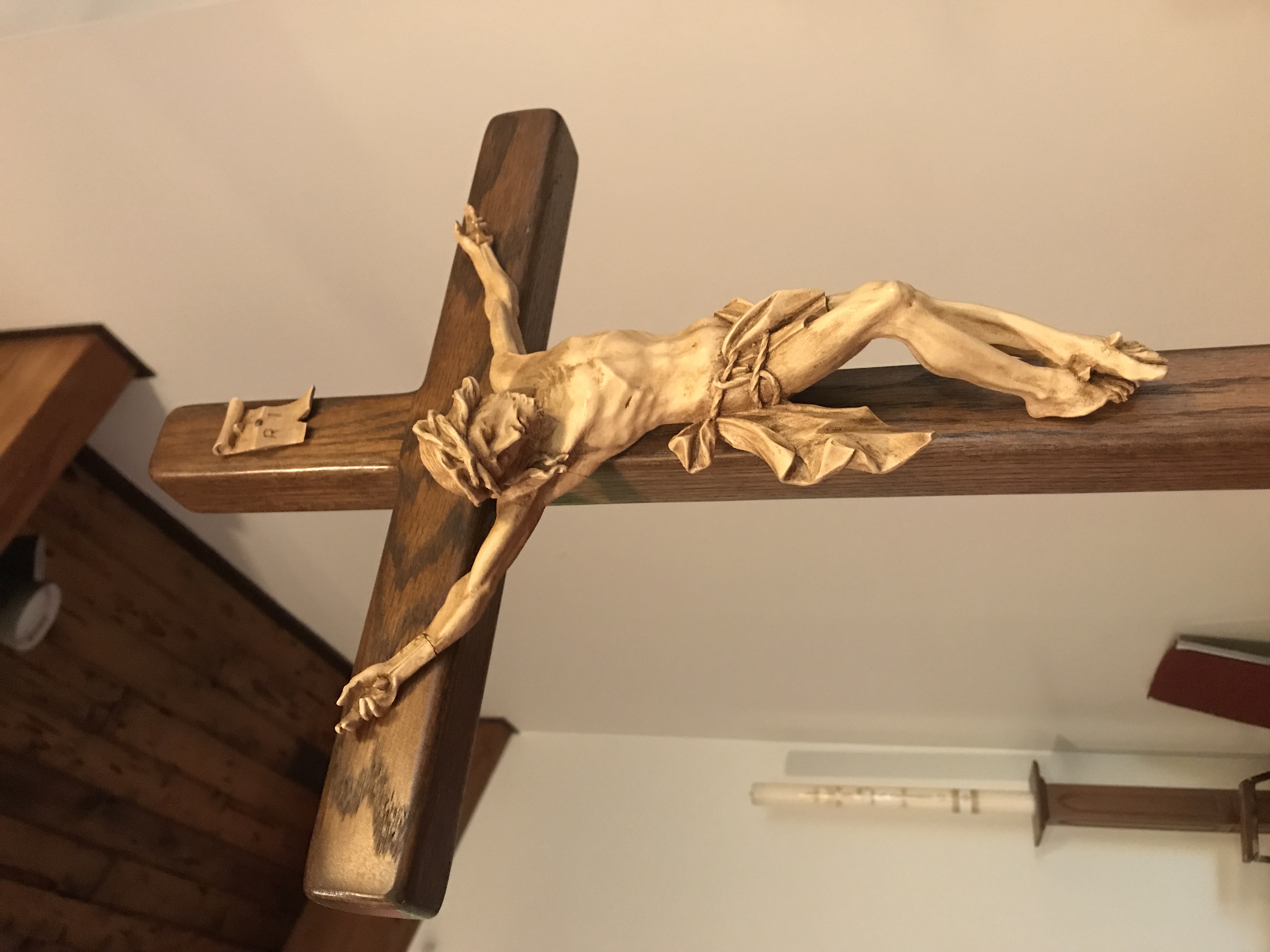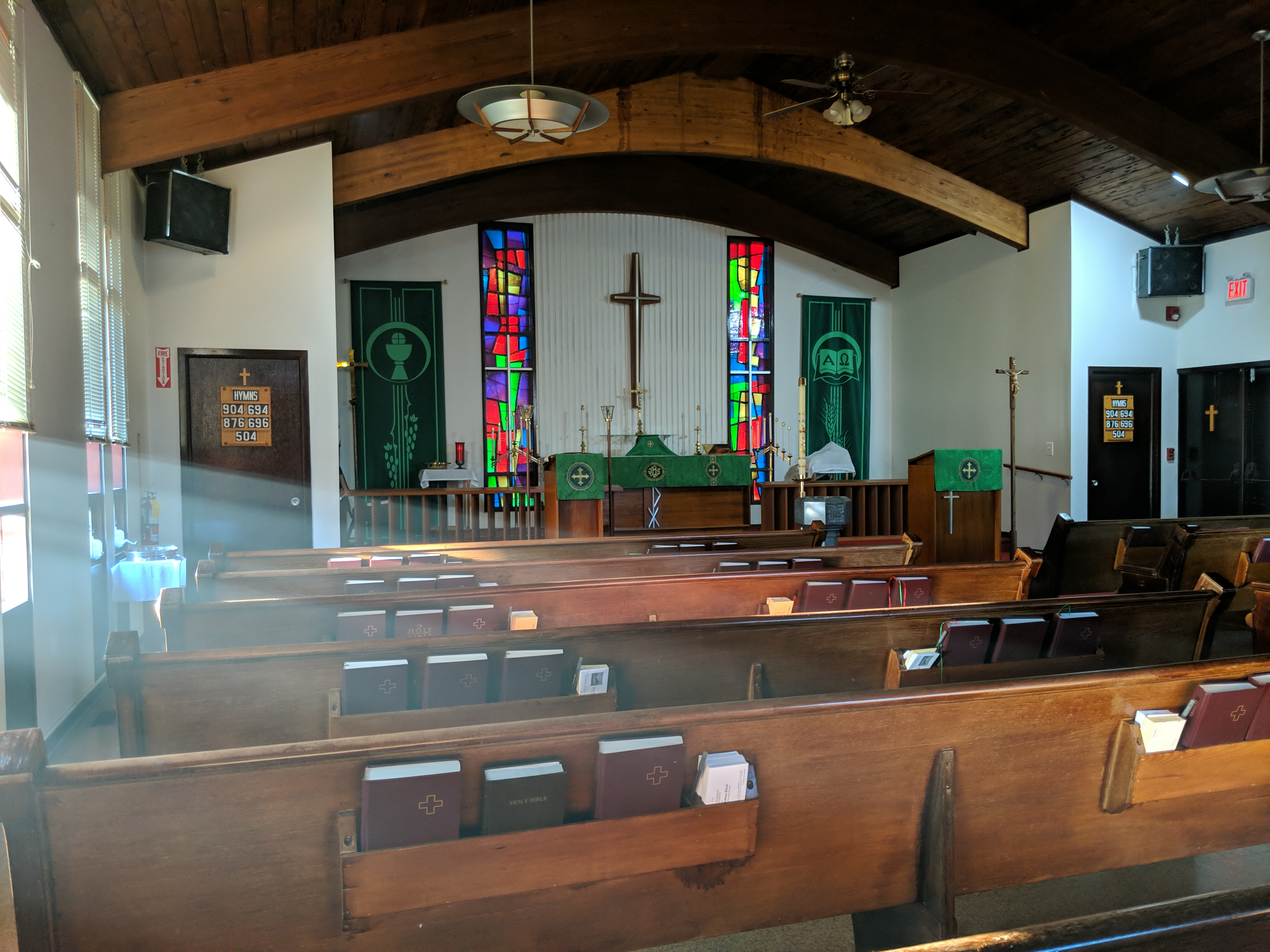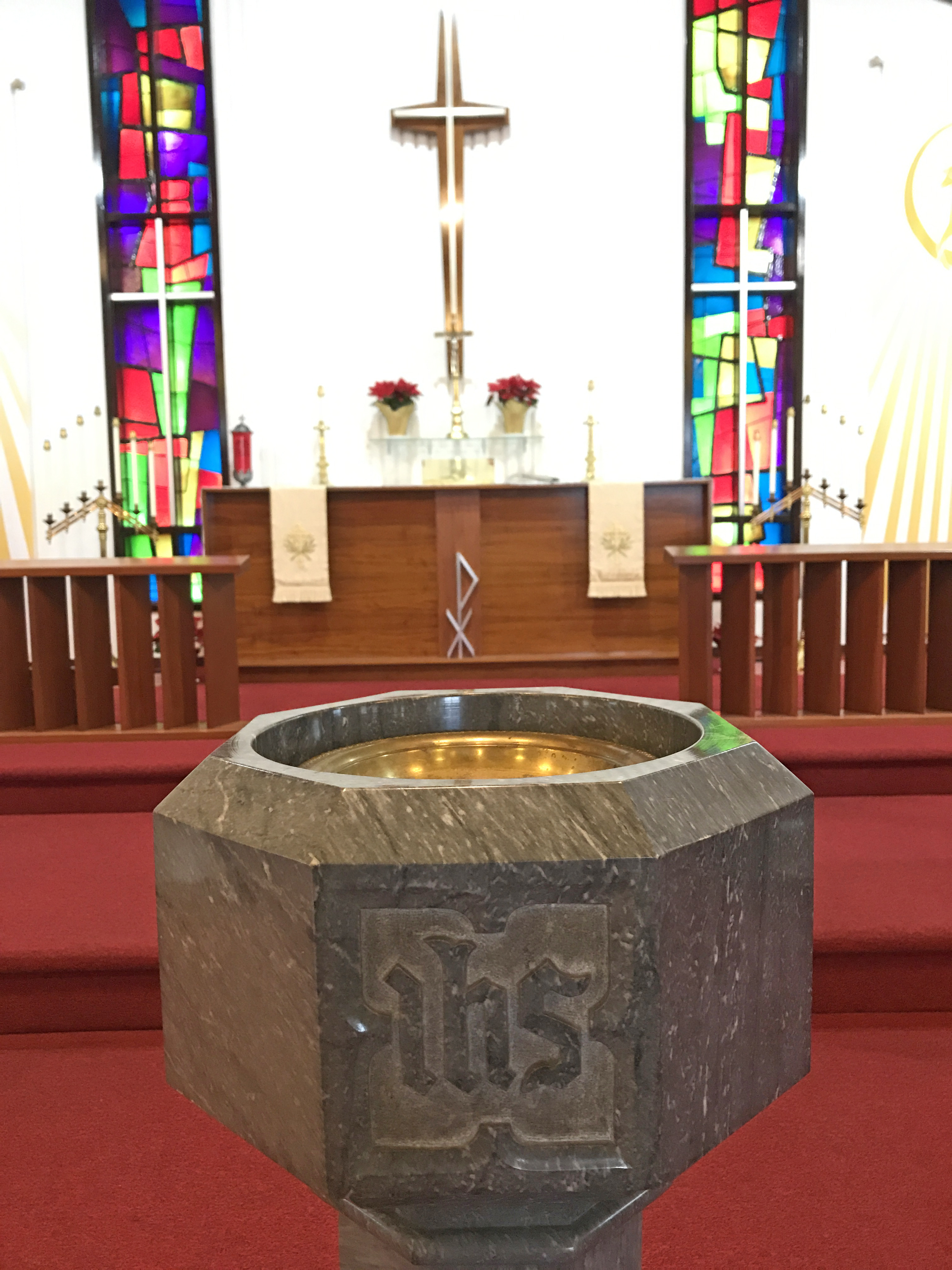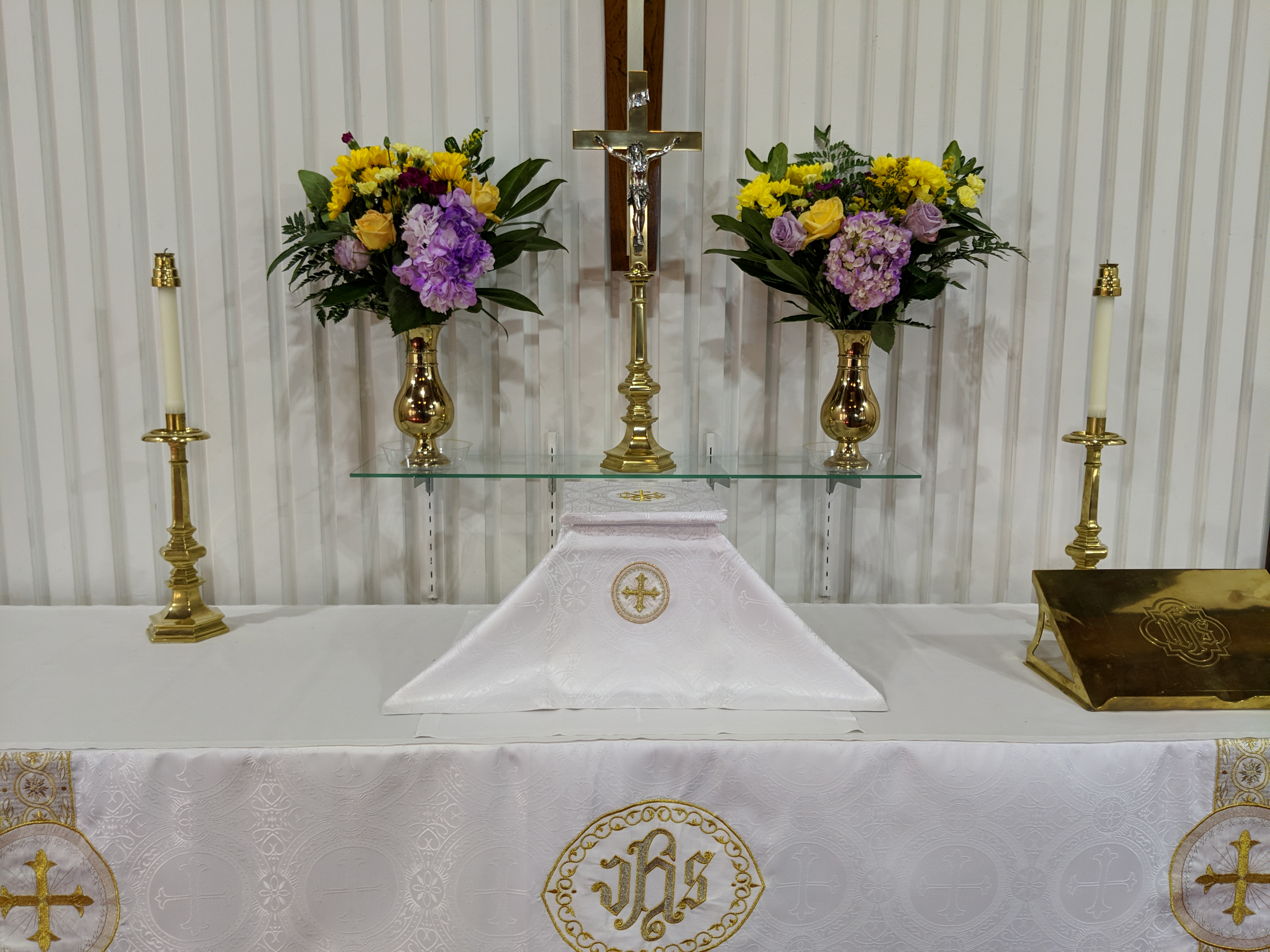The Tenth Sunday after Trinity – Sunday 13 August A✠D 2023
✠ Psalmody: Psalm 55:16a, 17b, 18a, 22a;55:1, 4-5, 16;17:8, 2;88:1
✠ Lection: Jeremiah 7:1-11;1 Corinthians 12:2-11;Luke 19:41-48
In the Name of the Father and of the ✠ Son and of the Holy Spirit. Amen.
As Jesus drew near Jerusalem, He saw the city and wept over it, speaking words of lament and woe that ended with, “because you did not know τὸν καιρὸν τῆς ἐπισκοπῆς σου (because you did not know the time of your visitation).” I bring up the Greek because that next to last word ἐπισκοπῆς, or visitation, is the same root from which we get our word bishop. That’s an important aspect because of the element of visitation that is involved in a bishop’s duties. But we need not only understand the word bishop to mean the office, the church position, for which we only use that title today, such as for Bishop Hardy who is the overseer of all the congregations and pastors in the LCMS English District. He is the one responsible for visitation to each of us as needs arise. The bishop word’s fundamental biblical sense though is simply that of an overseer put into place by God, meaning that He desires for His people to be overseen, watched over, looked out for; to be taken care of. Every congregation that has a pastor absolving sins, preaching the word, administering the sacraments, carrying out the Ministry of Christ in its midst has their very own bishop, there very own overseer, who most commonly goes by the title pastor. Yes, I am your pastor, your bishop, your overseer; authorized and called by God to be directly responsible for tending to you as an undershepherd over one of Christ’s numerous flocks upon the earth. Which means what is wrapped up into my responsibilities is visitation.
There are a whole lot of ways in which the visitation I am to do with you takes place. They not only include literal visits where I come to you in home, in hospital, in funeral home, in jail, in recreation, in labor, but also as you come to me either for pastoral counsel and intercession or even as you come to the font and altar where Jesus Christ your Lord uses my ordained voice and hands to administer His grace to you; yes, He most certainly visits you there. But this phrase that Jesus uses in Luke 19 comes with a lot more weight to it than just where you encounter your Lord or his consecrated representative.
The time of your visitation has Old Testament roots that are predominantly associated with judgement. This is the aspect of Christ’s visitation that you don’t want to be on the wrong side of, especially not on the Last Day. For we see what the Lord prophesied about Jerusalem as the Holy City rejected its Lord and King, as it cast Him aside as unworthy of their time, consideration, worship, or dedication. Jesus says, “For days will come upon you when your enemies will build an embankment around you, surround you and close you in on every side, and level you, and your children within you, to the ground; and they will not leave in you one stone upon another, because you did not know the time of your visitation.” They did not know it, meaning that Christ coming to them carried little or no true value in their eyes. They had more important (little “g”) gods to worship although their blind eyes kept them from desiring He alone Who is good. Their destruction is clear judgement for the rejection of the holiness of God the Father, of the grace being shown through God the Son, and of the convicting work of God the Holy Spirit. God’s wrath is poured out on all manners of wickedness where Christ and His good gifts are cast to the side as if He’s the most boring channel in the TV lineup. The destruction of Jerusalem for such disregard that eventually came in AD 70 was but a small taste of the just fury to come upon all the unrepentant when Jesus Himself will pour out the cup of wrath upon them.
But again, notice the mercy of God, for this city of sinners was destroyed decades after its Savior had come and died for all their sins just outside the city walls. They were under the impending, righteous judgement of God before that Good Friday. They were under it before He wept over the city. They were under it before His baptism, temptation, and suffering. They were under it before His incarnation, and yet He came. He made His visitation calling sinners to repent and trust in God to cleanse them from all unrighteousness. The judgement comes after the rejection and much as its consequence, because Jesus’ visitation was one of grace that makes for peace that they did not know.
All of this directly ties to you and the life that you live with your bishop as I aim to fulfill God’s call of visitation in your lives. In the first aspect, that of judgement, yes, you should fear the judgement of God coming down upon you either by words that I may speak to you or through His divine providence that you cannot escape no matter how hidden you think you and your sins are. Indeed, you should fear that kind of treatment, but only if you are an unbeliever or if you are unrepentant of your sin. But, if you are in Christ, God’s visitation in your life through the involvement of your pastor in whatever you’re going through isn’t something to fear, but to embrace with thanksgiving, even if you know the road will be tough; especially if you know the road will be tough. To call upon Christ’s messenger to come to you personally so that you may confess your sin isn’t to invite God’s judgement upon you but is to pour His grace upon you unto forgiveness. The hard part of it all only comes out of your flesh kicking and screaming as you drown the Old Adam with those sins and evil desires. Such judgement against your sin is good and sanctifying and is the kind of visitation your dear Lord desires so that you may live, not in slavery to sin, but in slavery to righteousness, and life, and goodness. So, I urge you will all degrees of seriousness, do not neglect the benefit of having a pastor who loves you, will jump into any darkness with you so as to lean upon Christ our Lord to pull us out by His might and power as He visits us both. That’s the role of the visitation of I, your bishop.
The less distance you keep between the struggles of your earthly life and the means of grace by which your compassionate Savior sends for your preservation to the end the better. As you live this life, Christ has made everyday your day in which He makes known to you the things that make for your peace, namely His Word, your prayers, this Holy House where He visits you, and in the personal involvement of your bishop in your walk of life no matter if you suffer by your own hands or those of the devil or the world. If you refuse to repent of sin and walk the wide path that leads to destruction, yes, my call is to bring God’s judgement to you and to bind your sins upon you until you repent. But that is your choice to remain there if you do, for what God and I both desire is that you make every good use of His grace in your life, to wage war against the sin that rages in your flesh, to confess and be absolved, and to lean upon the strength that He sends to you regardless if you need to be properly rebuked or if you need someone to lock arms with you in fight, hands with you in prayer, or lamentations with you in grief. If you refuse to have me involved in what you face, it doesn’t necessarily mean that you are rejecting Christ, but you are distancing yourself from what He has put in place for you, whom He loves. Christ desires all manners of the His visitation to you to bring about peace. Out of any and all visitation, your Savior and Mighty King, as well as I, His humble servant, seek your good. Always.
In ✠ Jesus’ Name. Amen.















Comments are closed, but trackbacks and pingbacks are open.